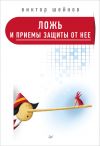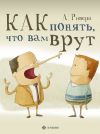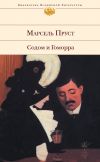Текст книги "Прирожденные лжецы. Мы не можем жить без обмана"

Автор книги: Иэн Лесли
Жанр: Социальная психология, Книги по психологии
Возрастные ограничения: +16
сообщить о неприемлемом содержимом
Текущая страница: 22 (всего у книги 22 страниц)
Leites E. Conscience and Casuistry in Early Modern Europe. – Cambridge: Cambridge University Press, 1988.
Leslie I. Arrested Development. // The Times (Eureka), February 4, 2010.
Leslie I. The Honest Truth About Man’s Ability to Lie. // The Times (Eureka), 5 November 5, 2009.
Levi-Strauss C. The Sorcerer and His Magic, in Structural Anthropology. – Penguin Books, 1977.
Lewis M., Saarni C. Lying and Deception in Everyday Life. – The Guilford Press, 1993.
Leys S. The Analects of Confucius. – W. W Norton & Co., 1998.
Libet B., Gleason C. A., Wright E. W. and Pearl D. K. Time of conscious intention to act in relation to onset of cerebral activity (readiness potential): The unconscious initiation of a freely voluntary act. // Brain, 102, 1983. – P. 623–642.
Lichtenberg P. and Nitzan U. Questionnaire survey on use of placebo. // British Medical Journal, 329: 944, 2004.
Lifton R. J. The Nazi Doctors: Medical Killing and the Psychology of Genocide. – Basic Books, 2000.
Loftus E. F. and Pickrell, J. E. The Formation of False Memories. // Psychiatric Annals 25, December 2005.
Loftus E., et al. Pluto Behaving Badly: False Beliefs and Their Consequences. // American Journal of Psychology, Vol. 121, N. 4, 2008. – P. 643–660.
Loftus E. F., Palmer J. C. Reconstruction of Automobile Destruction: An Example of the Interaction Between Language and Memory. // Journal of Verbal Learning and Verbal Behaviour, Vol. 13, 1974. – Р. 585–589.
Lopez C.– A. Franklin and Mesmer: An Encounter. // Yale Journal of Biology and Medicine. Vol. 66, 1993. – Р. 325–331.
Machiavelli N. The Prince. – Penguin Classics, 2003.
McCullough M. E., et al. Religious involvement and mortality: a meta-analytic review. // Health Psychology, Vol. 19 (3), May, 2000.
McGarry P. Church «lied without lying». // Irish Times, November, 26.
Mitchell R. W. and Thompson N. S (ed.). Deception: Perspectives on Human and Non-human Deceit. – State University of New York Press, 1986.
Montaigne M. The Essays (A Selection) (tr. and ed. M. A Screech). – Penguin Classics, 2004.
Morgan E. S. Benjamin Franklin. – Yale: Yale University Press, 2002.
Mezulis A. H., Abramson L. Y., Hyde J. S. Hankin B. L. Is there a universal positivity bias in attributions? // Psychology Bulletin, 130 (5), September, 2004. – P. 711–747.
Moerman D. Meaning, Medicine, and the Placebo Effect. – Cambridge: Cambridge University Press, 2002.
Morris D. B. The Culture of Pain. – University of California Press, 1993.
Morris D. B. Placebo, Pain and Belief: A Biocultural Model. – Harrington, 1997.
Morris E. Seven Lies About Lying. Parts 1 & 2. // The New York Times, August 5/6, 2009.
Muller S., et al. How do world-class cricket batsmen anticipate a bowler’s intention? // Quarterly Journal of Experimental Psychology, 59 (12), December, 2006. – P. 2162–2186.
Norton M. I. & Ariely D. Self-deception: How we come to believe we are better than we truly are. – Cited in Chance & Norton, 2009.
Nye J. V. C. Lucky Fools and Cautious Businessmen: on Entrepreneurship and the Measurement of Entrepreneurial Failure. // In Joel M. ed. The Vital One: Essays In Honour of Jonathan R. T. Hughes. // Research in Economic History, Vol. 6, 1991. – P. 131–152.
Ofshe R., Watters E. Making Monsters: False Memories, Psychotherapy, and Sexual Hysteria. – University of California Press, 1994.
Olsson J. Wordcrime: Solving Crime Through Forensic Linguistics. – Continuum IPG, 2009.
Onishi K. H., et al. Do 15-Month-Old Infants Understand False Beliefs? // Science Vol. 308, 255, 2005.
Perner J. Understanding the Representational Mind. – MIT Press, 1991.
Person E., et al. On Freud’s «Creative Writers and Day-dreaming». – IPA Publications, 1995.
Pessoa F. The Book of Disquiet (tr. Margaret Jull Costa). – Serpent’s Tail, 2010.
Phillips D. P., Ruth T. E., Wagner L. M. Psychology and Survival. // Lancet, N 6; 342 (8880), 1993. -P. 1142–1145.
Plaskett J. The Millionaire Three. – Retrieved from http://www.themillionairethree.com.
Plassman H., O’Doherty J., Baba S., Rangel A. Marketing actions can modulate neural representations of experienced pleasantness. // Proceedings of the National Academy of Sciences, 105, 2007. – P. 1050–1054.
Porter S., et al. Negotiating False Memories: Interviewer and Rememberer Characteristics Relate to Memory Distortion. // Psychological Science, Vol. 11, N 6, November, 2000. – P. 507–510.
Postrel V. In Praise of Irrational Exuberance. // Big Questions Online, October 28, 2010.
Proffi tt D. R., Creem S. H., Zosh W. D. Seeing Mountains in Molehills: Geographical Slant Perception. // Psychological Science, Vol. 12, N 5, September, 2001. – P. 418–423.
Pronin E. How We See Ourselves and How We See Others. // Science, Vol. 320, May 30, 2008.
Pronin E., Daniel Y., Lin L. R. The Bias Blind Spot: Perceptions of Bias in Self Versus Others. // Personality and Social Psychology Bulletin, Vol. 28, N 3, March, 2002. – P. 369–381.
Raine A. Y., Yang Y., et al. Localisation of increased prefrontal white matter in pathological liars. // Br J Psychiatry, 190, 2007. – P. 174–175.
Raine A., Yang Y., et al. Prefrontal white matter in pathological liars. // Br J Psychiatry, 187, 2005. – P. 320–325.
Railton P. Moral Camoufl age or Moral Monkeys? // The New York Times, July 18, 2010.
Reddy V. How Infants Know Minds. – Harvard, 2008.
Ronson J. Are The Millionaire Three Innocent? // The Guardian, July 17, 2006.
Rosenblatt H. The Cambridge Companion to Constant. – Cambridge: Cambridge University Press, 2009.
Roth P. American Pastoral. – Vintage, 2005.
Saletan W. The Memory Doctor. // Slate, June 4, 2010.
Salmon F. Helen Thomas, Christopher Hitchens, and Being Wrong. // Reuters, June 7, 2007.
Sartre J. P. The Wall. -W. W. Norton & Co, 1969.
Schopenhauer A. The World As Will and Representation. – Cited in Gray, 2002.
Schauer F. Can Bad Science Be Good Evidence: Lie Detection, Neuroscience, and the Mistaken Confl ation of Legal and Scientifi c Norms. //Cornell Law Review, August, 2010.
Scholem G. Sabbatai Sevi: The Mystical Messiah. – Routledge & Kegan Paul, 1973.
Shiv B., Carmon Z., Ariely D. Placebo Effects of Marketing Actions: Consumers May Get What They Pay For. // Journal of Marketing Research, 2005.
Silberman S. Placebos Are Getting More Effective. // Wired, August 24t, 2009.
Simons D. J., Levin D. T. Failure to detect changes to people in a real-world interaction. // Psychonomic Bulletin and Review, 5(4), 1998. – P. 644–649.
Slater L. Opening Skinner’s Box. – Bloomsbury, 2005.
Smith A. The Theory of Moral Sentiments. – Cambridge: Cambridge University Press, 2002.
Somerville J. The New Art of Lying. – Leites, 1988.
Snyder M. L., Kleck R. E., Strenta A., Mentzer S. J. Avoidance of the handicapped: An attributional ambiguity analysis. // Journal of Personality and Social Psychology, Vol. 37, 1979. – P. 2297–2306.
Starek J. and Keating C. Self-Deception and Its Relationship to Success in Competition. // Basic and Applied Social Psychology, 12 (2), 1991. – P. 145–155.
Sternberg R. J., O’Hara L. Creativity and Intelligence. – Sternberg, 1999.
Sternberg R. J. (ed.). Handbook of Creativity. – Cambridge: Cambridge University Press, 1999.
Stevens W. Opus Posthumous: Poems, Plays, Prose. – Vintage, 2002.
Stouthamer-Loeber. «Adults» perception of verbal misrepresentation of reality in four-year-olds. – Unpublished, University of Pittsburgh (cited in Perner, 1991).
Sutherland R. Life Lessons From an Adman. // TED Talks, July, 2009. (http://www.ted.com/talks/rory_sutherland_life_lessons_from_an_ad_man.html)
Svenson O. Are we all less risky and more skillful than our fellow drivers? // Acta Psychologica, Vol. 47, Issue 2, February, 1981. – P. 143–148.
Tait M. J., et al. Improved outcome after lumbar microdiscectomy in patients shown their excised disc fragments. // Journal of Neurology, Neurosurgery, and Psychiatry, 80 (9), September, 2009.
Taylor S. E. Positive Illusions; Creative Self-Deception and the Healthy Mind. – Basic Books, 1991.
Twain M. On the Decay of the Art Of Lying. – FQ Books, 2010.
Vasek M. E. Lying As a Skill: The Development of Deception in Children. – Mitchell, 1986.
Vrij A. Detecting Lies and deceit: the psychology of lying and the implications for professional practice. – Chichester, England: John Wiley & Sons, Ltd., 2000.
Vrij A., Leal S., Mann S., Warmelink L., Granhag P. & Fisher R. Drawings as an innovative and successful lie detection tool. // Applied Cognitive Psychology, 24, 2010. – P. 587–594.
Vrij A. and Semin G. R. Lie experts’ beliefs about nonverbal indicators of deception. // Journal of Nonverbal Behavior 20, 1996. – P. 65–80.
Watters E. The Devil In Mr. Ingram. // Mother Jones, July-August, 1991.
Weiner T., David J., Neil L. Betrayal, The Story of Aldrich Ames, an American Spy. – Richard Cohen Books, 1996.
Wenger A. and Flowers B. Positive Illusions in Parenting: Every Child is Above Average. // Journal of Applied Social Psychology, Vol. 38, Issue 3, 2008. – P. 611–634.
Wegner D. M. & Wheatley T. P. Apparent mental causation: Sources of the experience of will. // American Psychologist, 54, 1999. – P. 480–492.
Weiss B., & Feldman R. S. Looking good and lying to do it: Deception as an impression management strategy in job interviews. // Journal of Applied Social Psychology, 36, 2006. – P. 1070–1086.
Wilde O. The Decay of Lying. – Penguin, 1995.
Wilson T. Strangers to Ourselves. – The Belknap Press of Harvard University Press, 2002.
Woods K. M., Stout M. E. Saddam’s Perceptions and Misperceptions: The Case of Desert Storm. // The Journal of Strategic Studies, Vol. 33, № 1, February, 2010. – P. 5–41.
Wrangham R. Is Military Incompetence Adaptive? // Evolution and Human Behavior, 20, 1999. – P. 3–17.
Wright L. Remembering Satan: Recovered Memory and the Shattering of a Family. – Serpent’s Tail, 1994.
Wright R. The Moral Animal. – Abacus, 1996.
Yamagishi T., et al. Trust, gullibility and social intelligence. // Asian Journal of Social Psychology, 2, 1999. – P. 145–161.
Zagorin P. Ways of Lying: Dissimulation, Persecution and Conformity in Early Modern Europe. – Harvard: Harvard University Press, 1990.
Zannino G. D., et al. Do Confabulators really try to remember when they confabulate? A case report. // Cognitive Neuropsychology, 25:6. – P. 831–852.
Zborowski M. Cultural Components in Responses to Pain. – Health and The Human Condition (ed. Logan and Hunt), Wadsworth Publishing Co., 1978.
Zipperstein S. J. Underground Man: The Curious Case of Mark Zborowski and the Writing of a Modern Jewish Classic. // Jewish Review of Books, N 2, Summer, 2010.
Правообладателям!
Это произведение, предположительно, находится в статусе 'public domain'. Если это не так и размещение материала нарушает чьи-либо права, то сообщите нам об этом.








































